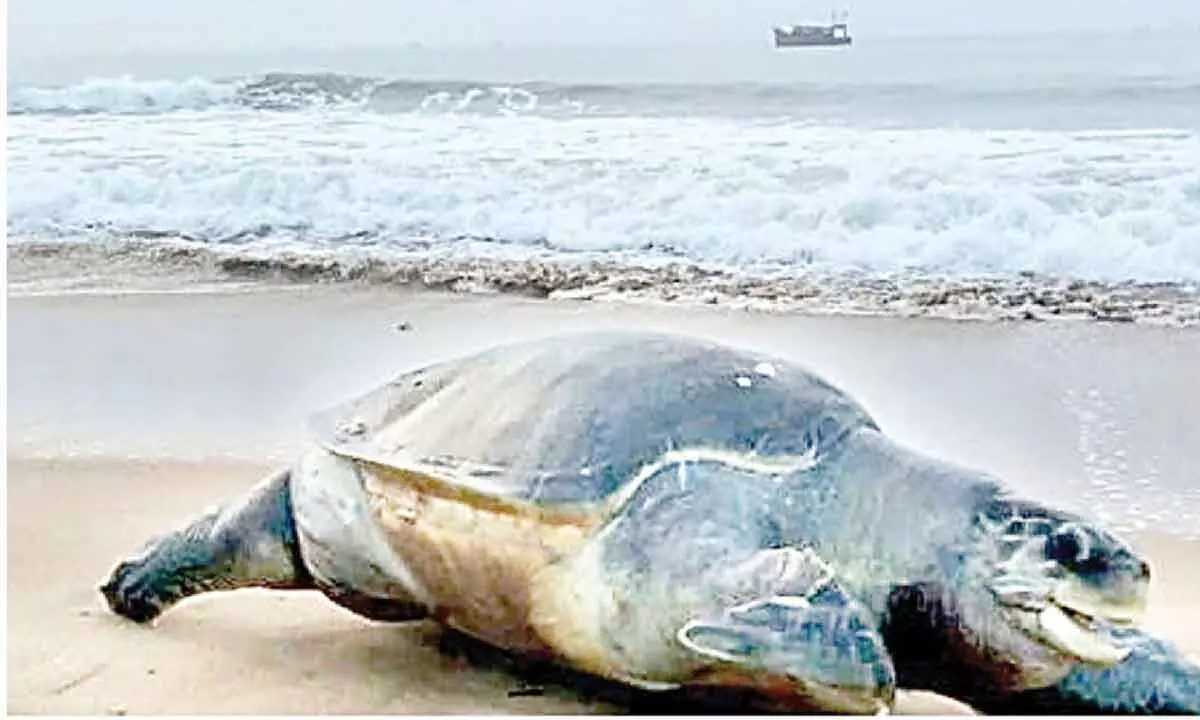Fishing ban imposed to protect Olive Ridley turtles

The Odisha government on Friday enforced a seven-month-long prohibition on sea fishing activity within 20 km off the coast at the river mouths of Dhamara, Devi and Rushikulya as part of the annual Olive Ridley turtle conservation programme.
Kendrapara : The Odisha government on Friday enforced a seven-month-long prohibition on sea fishing activity within 20 km off the coast at the river mouths of Dhamara, Devi and Rushikulya as part of the annual Olive Ridley turtle conservation programme. The fishing ban would remain effective from November 1 to May 31 to ensure the safety of marine animals during their breeding and mating season, officials said.
The ban has been clamped in accordance with Sections 2, 7 and 4 of Orissa Marine Fishing Regulation Act (OMFRA), 1982 and provisions of the Wildlife Protection Act, 1972. The fishing ban is imposed along a specified coast of the sea comprising sea turtle congregation area and their buffer zones at the river mouths of Dhamara, Devi and Rushikulya.
The prohibition will be strictly implemented as it is done every year as the turtles perish in larger numbers either by getting entangled in fishing nets or hit by fishing trawlers’ propellers. It will be a multi-layered patrolling exercise involving forest, fisheries and marine police besides the Coast Guard personnel, an official said.
To ensure effective patrolling, 61 on-shore camps and five off-shore camps have been set up in the State’s four wildlife divisions – Bhadrak, Rajnagar, Puri and Berhampur.
The Armed Police Constabulary force will flank the forest and fisheries patrolling teams. Five high-speed boats, 13 trawlers and support boats are pressed into service to intercept illegal marine fishing in prohibited zones, said Sudarshan Gopinath Yadav, Divisional Forest Officer, Rajnagar Mangrove (wildlife) Forest Division.
Around 10,666 fishermen’s families will be affected following the fishing ban. To compensate for the loss of income avenues, the State government has decided to extend one-time livelihood assistance of Rs 7,500 to the affected fishermen families.
The female turtles virtually invade the nesting beaches usually at the dead of the night for laying eggs, the phenomenon otherwise described as ‘arribada’.
After laying eggs, the turtles leave the nesting ground to stride into the deep seawater. Hatchlings emerge from these eggs after 45-60 days. It is a rare natural phenomenon where the babies grow without their mother, the official said.
The ban on sea fishing, however, remains enforced round-the-year in the Gahirmatha coast, which is widely regarded as the largest habitation corridor of these highly endangered marine species. Besides, Gahirmatha has been accorded the status of a marine sanctuary in view of turtles’ congregation, said forest officials.

